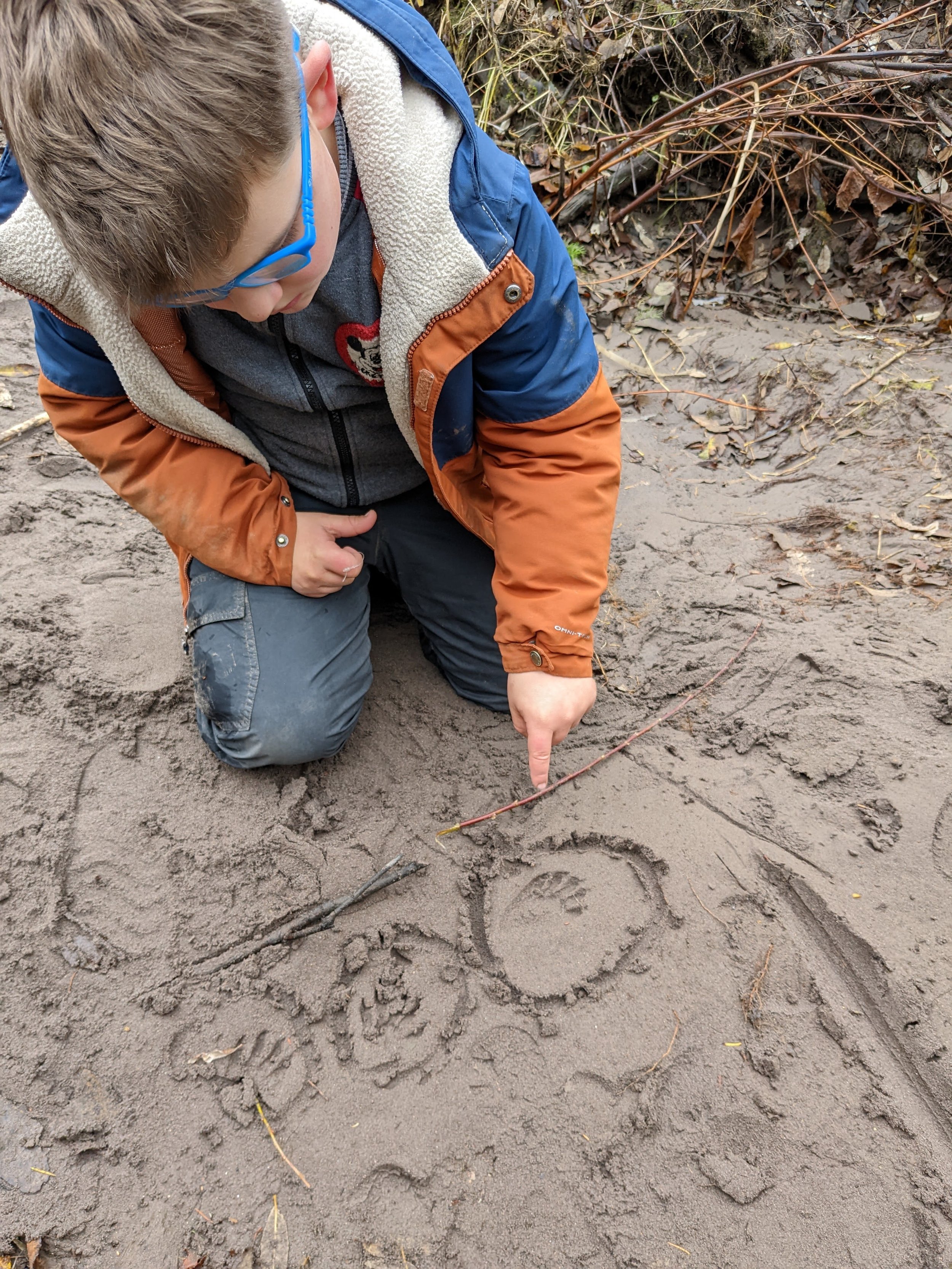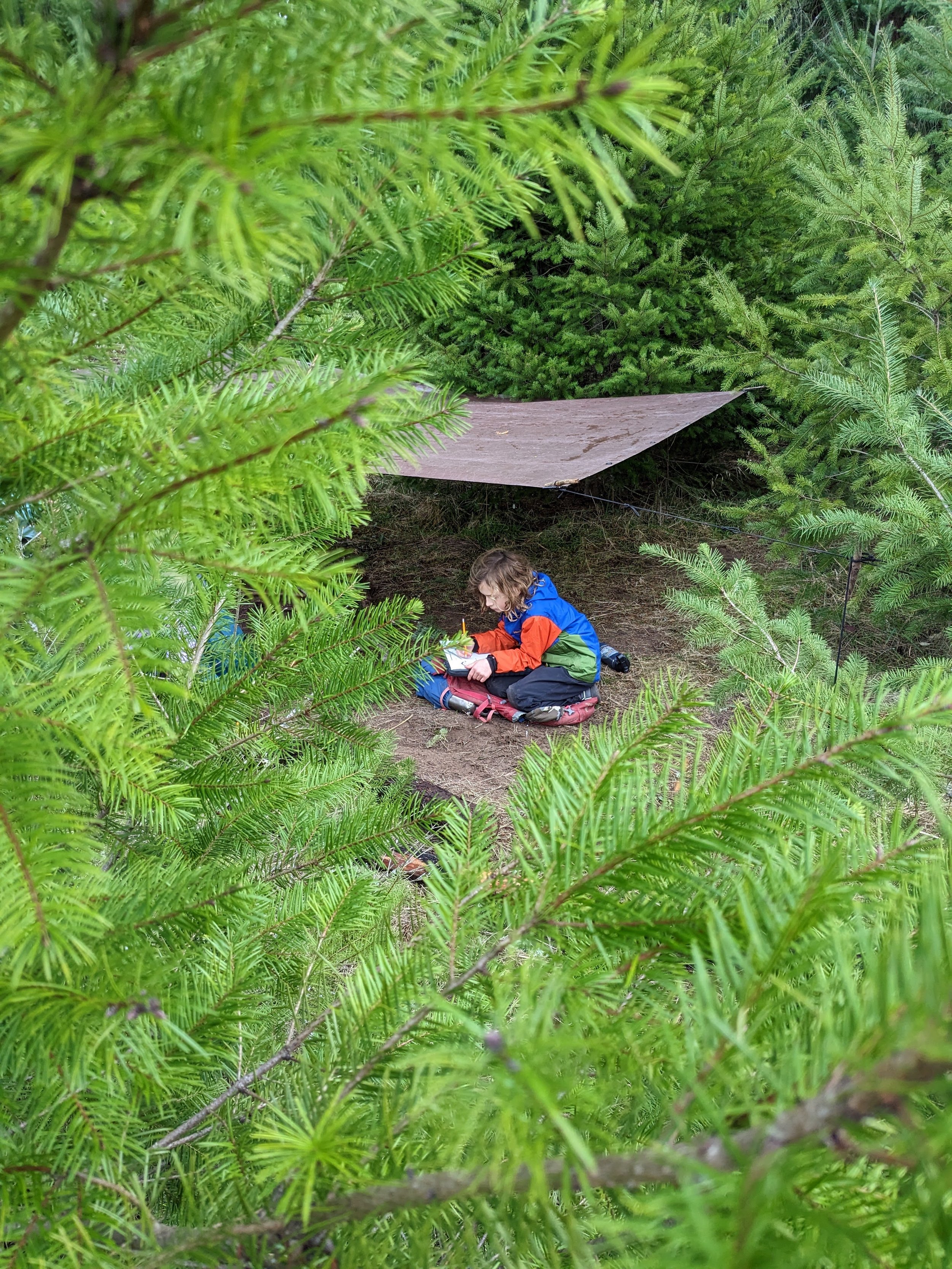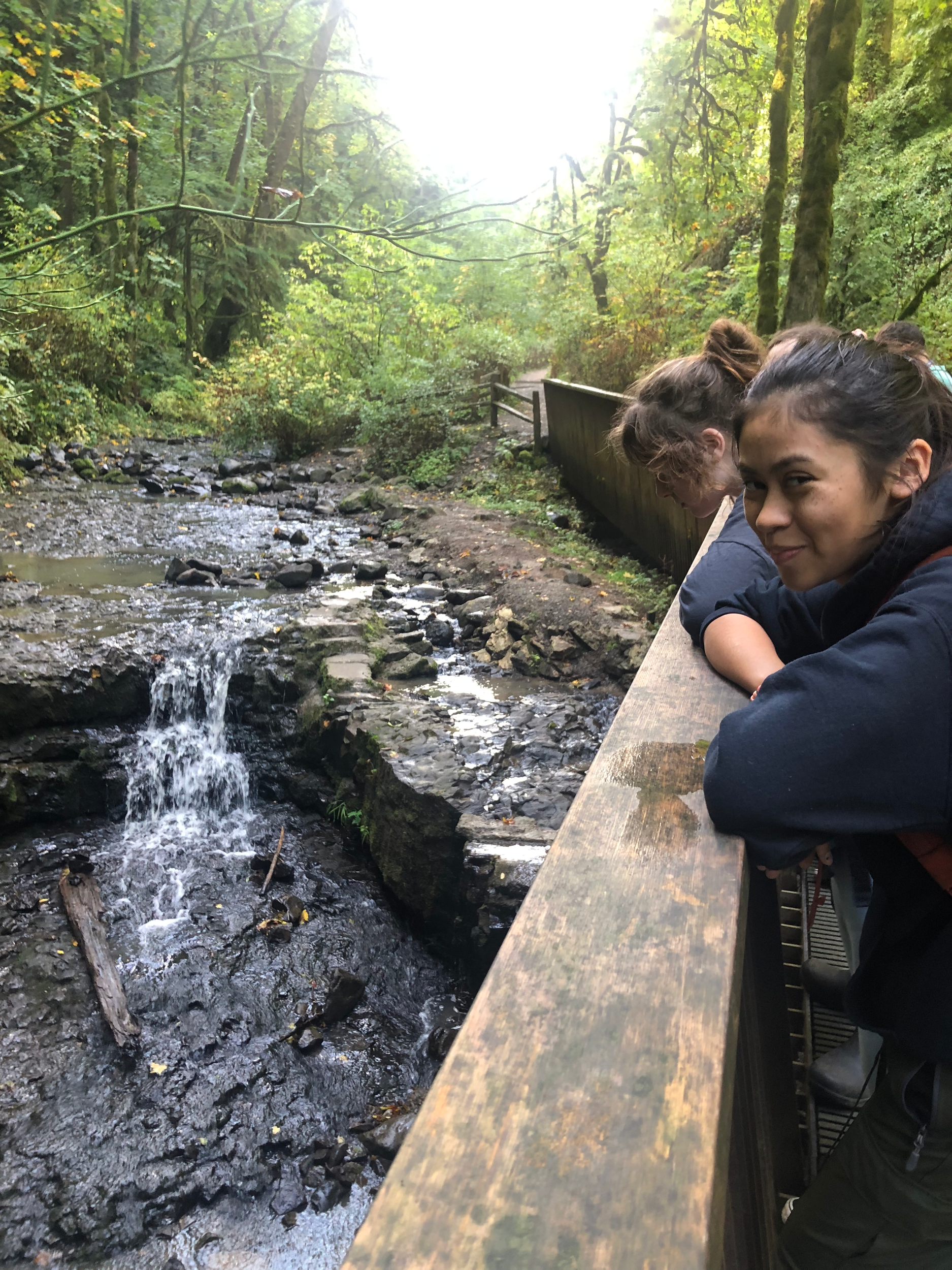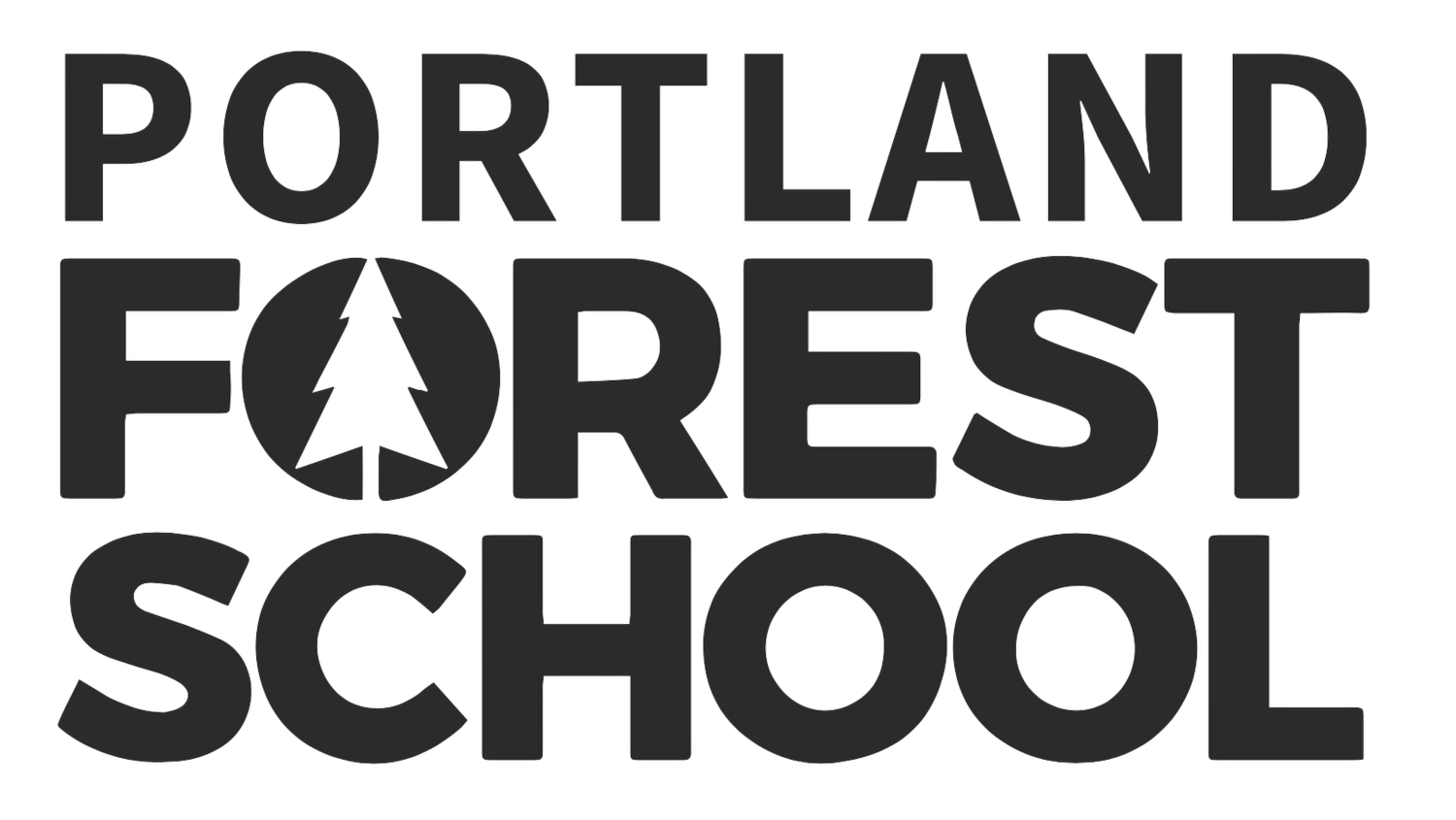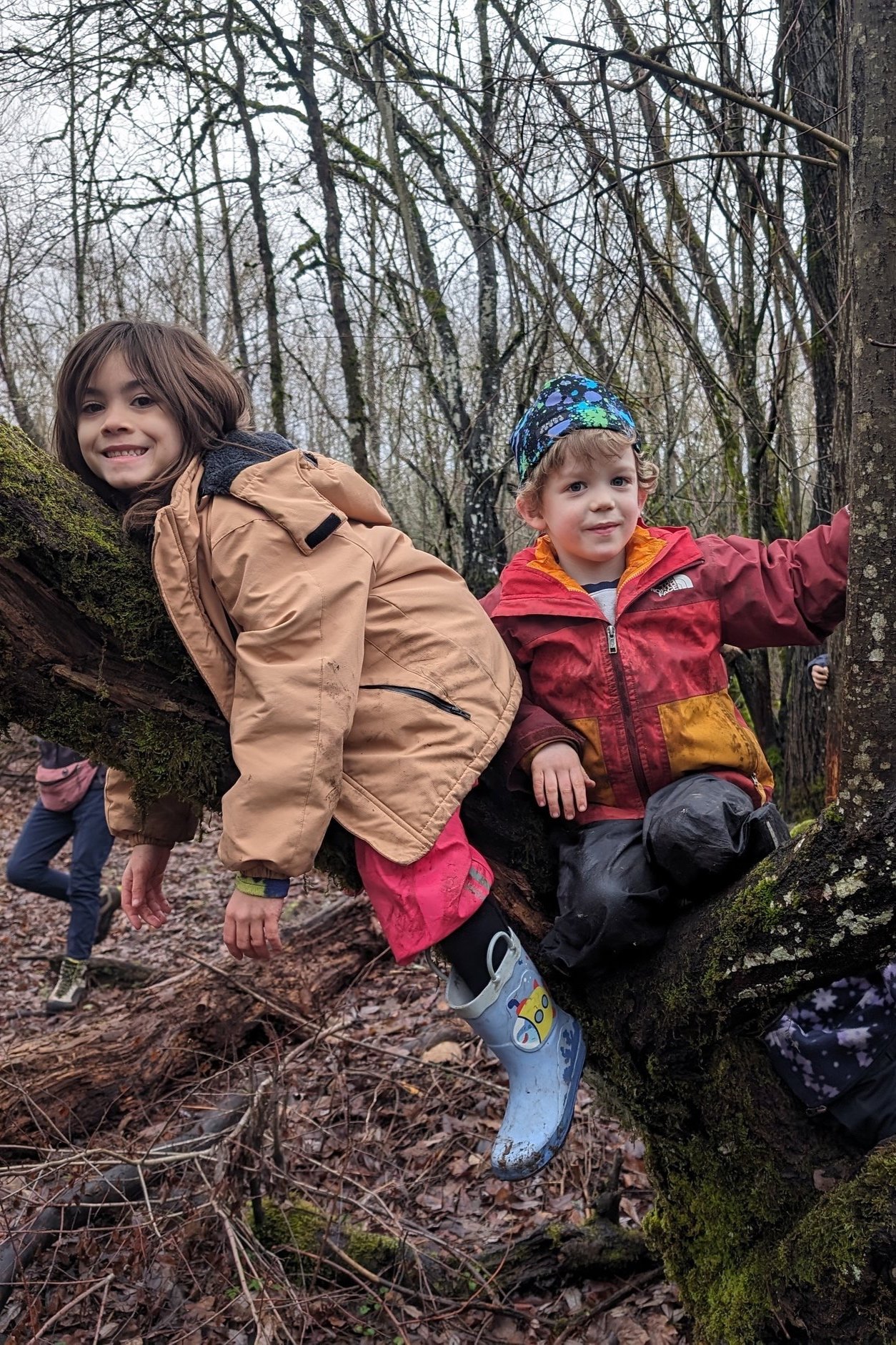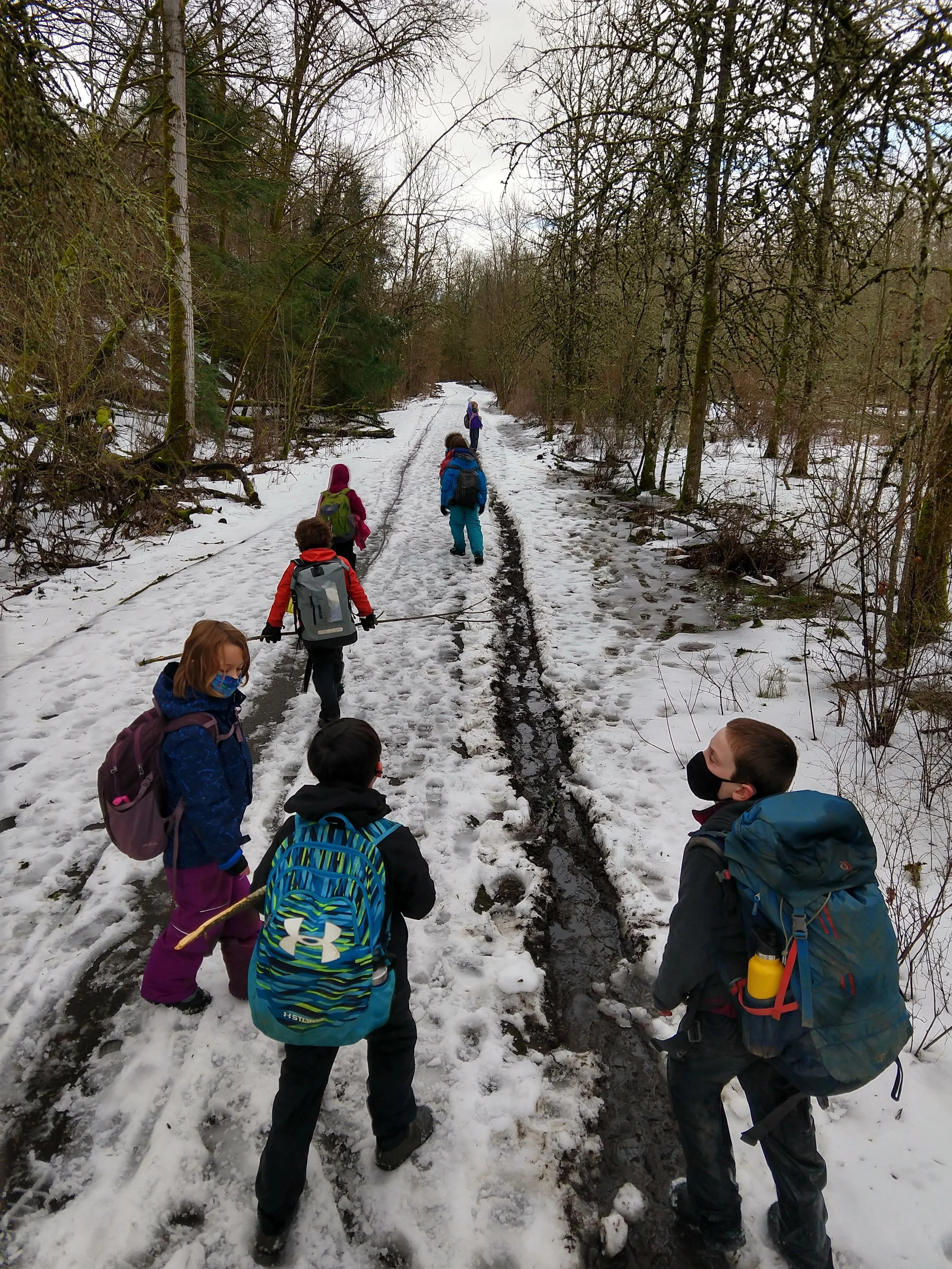
Education at the Portland Forest School
We are a school of community and nature. Our K-8th grade students journey outside and into the forest every day. They learn through collaboration with peers and alongside their mentors. Our interdisciplinary curriculum blends academics with hands-on learning, centered around observation in and participation with nature.
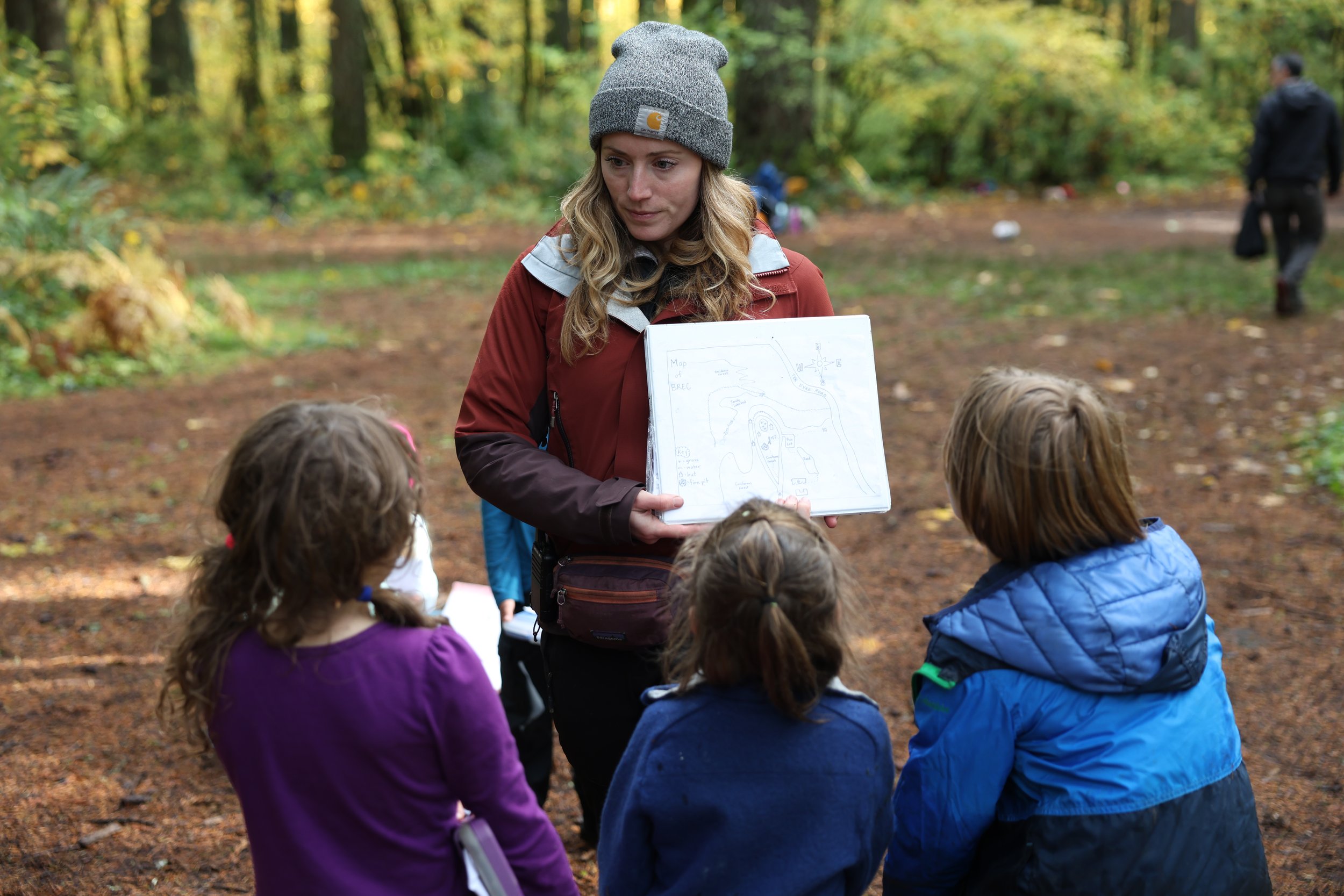
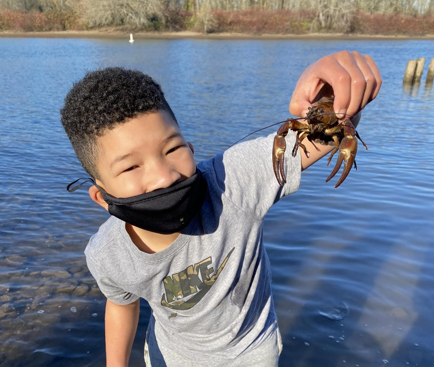
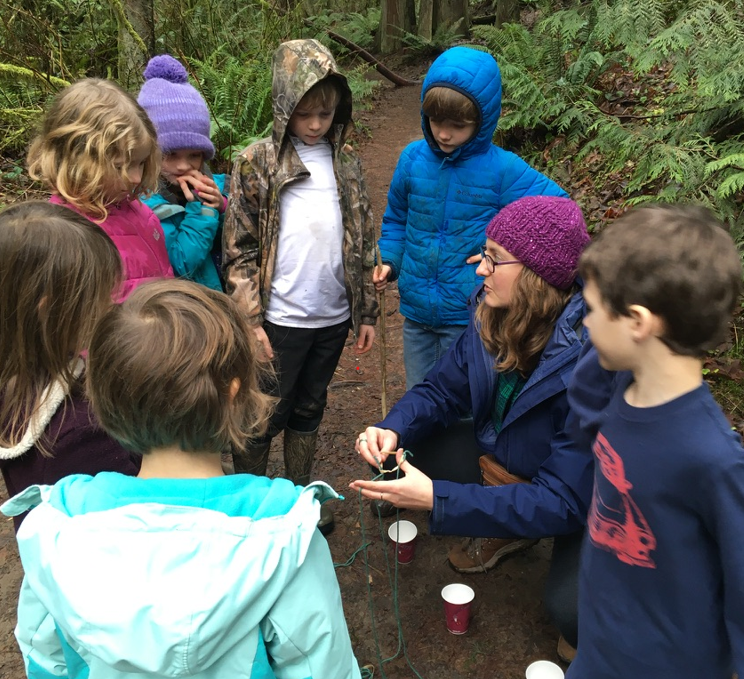
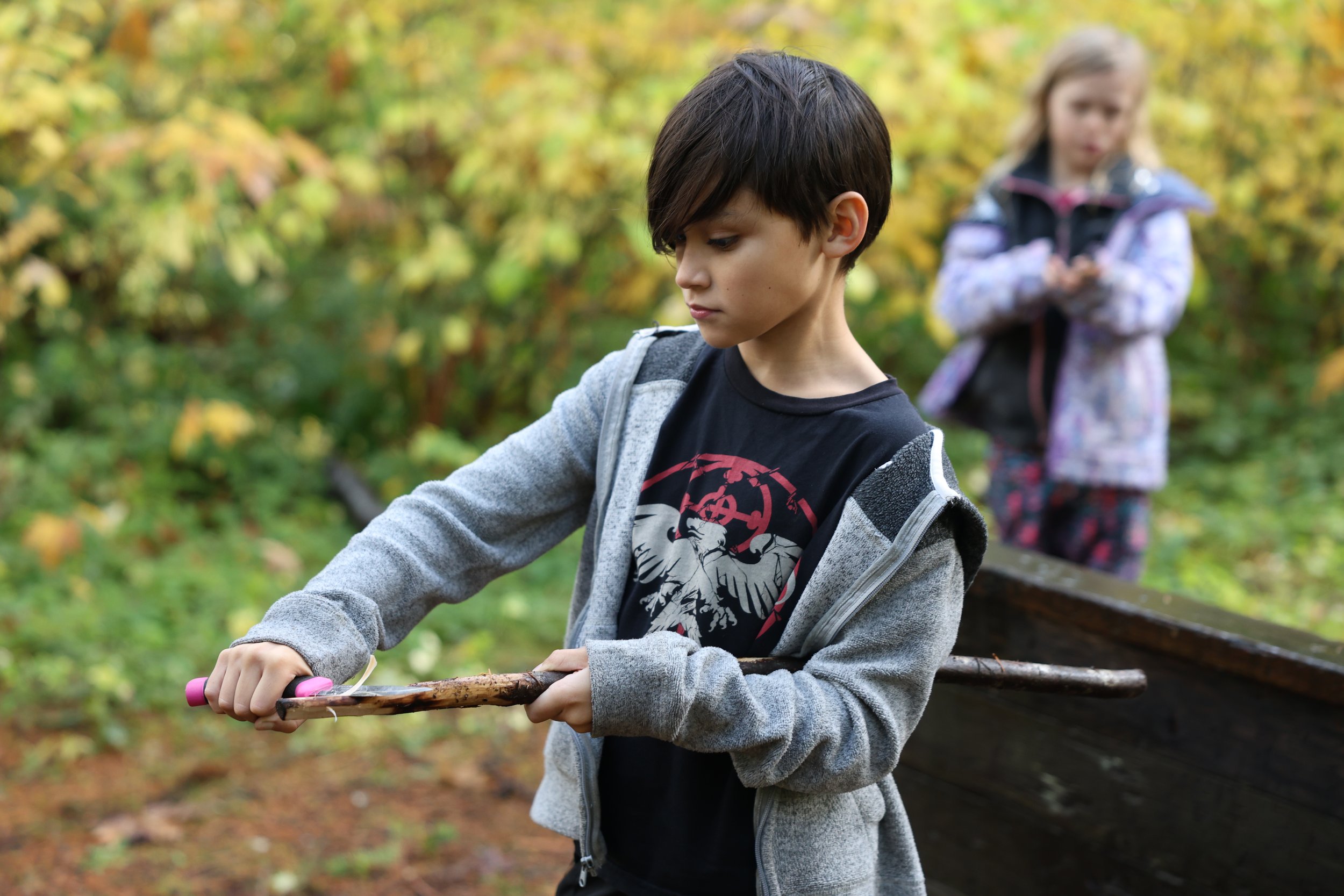
Our Core Beliefs
-
Community and Nature:
We are a school where community and nature intertwine seamlessly. Our students embark on a daily journey outside, immersing themselves in the forest surroundings. This unique approach allows for hands-on learning experiences, fostering a connection with the environment and each other.
-
Interdisciplinary Learning:
Our curriculum is thoughtfully designed to blend academics with hands-on experiences. Students engage in interdisciplinary studies, centered around observation and active participation in nature. This approach nurtures a well-rounded education that extends beyond traditional classroom walls.
-
Seasonal Living:
We live with the seasons, embracing the natural rhythm of the environment. Students not only play in nature but also forage for wild foods, create forest tools, and engage in crafts that deepen their understanding of the world around them.
-
Growing with the Land:
The students of the Portland Forest School grow alongside the land, plants, and animals that share their world. Through naturalist studies and life sciences, we instill research skills that last a lifetime, fostering a profound appreciation for the wonders of the natural world.
Our Classroom Pods
Our students are in combined classes (“pods”) and spend time together; inter-grade interactions is part of the culture of our school.
Younger children benefit from modeling by older children, who are our leaders and helpers.
Each class grouping has a 1/10 staff/student ratio, at the most.
Kinder / 1st-2nd
3rd-5th
6th-8th
Benefits of multi-age education
Provides more stability, children form solid relationships and a sense of community with both their peers and their teachers.
Children are able to spend longer periods of time with the same teacher, allowing the teacher to develop a deeper understanding of a child’s strengths and needs, and can better support the child’s learning.
Students learn at their own pace and not limited by grade level curriculum. All learners can be challenged.
When each child is working at their own pace, they can focus on their own learning goals and progress which creates less competition and comparing. Children are able to relax and enjoy the learning process without anxiety about their academics.
Students can organically learn about leadership, mentoring and collaboration.
Stronger social and emotional skills where children can learn from each other.
Intergenerational communication and reinforced learning of the fundamentals.
Older children can feel empowered with leadership roles increasing independence, competence and confidence. They are role models and younger kids can pick things up faster watching and learning from the older students.
Younger children watch and can seek guidance from the older students which enriches their learning experience and allows them to develop independence and to feel secure in their capabilities.
Offers a real world experience and better prepares children for interactions with people of age ranges, experiences and abilities.
Multi-age education cultivates a child-led learning environment where students can develop a lifelong love of learning.
FAQ’s About the Education
-
How does PFS use technology?
To be human is to use technology. From fire-by-friction to the bow and arrow or knife, all the way to computers and robots: Humans are technology users. We encourage children to use tech as a tool to deepen their connection to the world around them, not as a replacement for that connection. Tech is a tool to allow for more choices, not dictate the outline of their life.
-
How does PFS approach literacy?
Forest School is an environment rich in the written word. Students read, write, create, and learn through all manner of texts and media. For elementary and middle school grades, we recommend that students be reading at a minimum of at or one level below grade level. For students who need more support around reading or writing, we will work with families to find outside tutoring or other learning opportunities to help supplement their work.
-
Does PFS assign homework?
Research clearly shows that homework does not have a significant effect on knowledge retention or academic achievement in the elementary years. For our younger students, aside from reading at home and occasional long-term, self-directed projects, all work is completed during school hours. We would rather children participate in and help maintain the home, or just have fun with their family in the evenings! Students in our middle school receive homework appropriate to their academic needs.
